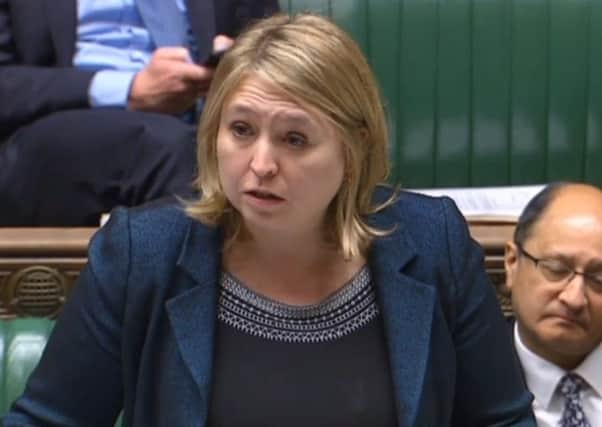Doug Beattie: Westminster civil servants bill undemocratic and undermines devolution


Emergency legislation, approved at Westminster on Wednesday, aims to provide more legal clarity for officials to make decisions in the absence of ministers.
The bill passed with a controversial amendment by Labour MP Stella Creasy, which will require the secretary of state to “issue guidance” on the law regarding abortion and same-sex marriage.
Advertisement
Hide AdAdvertisement
Hide AdAnd while Doug Beattie said that the legislation was “necessary to keep the lights on” in Northern Ireland, he felt it would not address the inherent issues that lie at the core of the Province’s power-sharing crisis.
He told the News Letter: “I am an elected representative; my job is to legislate and help my constituents. But I have been sidelined due to the ongoing political vacuum and those decisions will now be taken by an unelected permanent secretary. That is not democracy, that undermines MLAs.”
The Upper Bann MLA asserted that other mechanisms could be put in place to allow MLAs to have an input in the decision-making process.
“For example,” he added, “what is to stop big issues – such as a suicide prevention strategy – being brought forward to a small committee made up of each of the main parties? They could then sign it off, the permanent secretary could make a decision and it could be implemented.
Advertisement
Hide AdAdvertisement
Hide Ad“At least then we would have a say as elected politicians, and therefore the people of NI do as well. But right now, without any other mechanism in place, we are allowing unelected civil servants with no oversight make decisions for NI.
“So while parts of this bill are necessary so we can function as a country, I don’t think it will help restore the Executive in any shape or form.”
The Northern Ireland (Executive Formation and Exercise of Functions) Bill passed by 344 to 26 and now proceeds to the House of Lords.
The legislation comes with accompanying guidance to decisions that should be taken in the absence of a minister, taking into account whether the decision is in the public interest and needed to maintain the delivery of public services in the Province.
Advertisement
Hide AdAdvertisement
Hide AdAlong with providing clarity for civil servants, the bill is intended to allow time and space for political parties to agree a return to power-sharing government.
It provides a five-month period during which an Executive may be formed without further primary legislation or an Assembly election.
The bill is time-limited to March 26 2019, but can be extended for a further five months to August 26, if there is a genuine prospect of agreement.
The legislation also allows government ministers to make key public appointments in the absence of ministers.
Advertisement
Hide AdAdvertisement
Hide AdAlliance MLA Paula Bradshaw said she welcomed that progress had been made on giving direction to the civil service to take decisions in the public interest.
She told the News Letter: “It was very symbolic that the sovereign parliament has given this instruction to Karen Bradley and so from that point of view this bill was very significant.
“But it is lamentable that it has had to get to this point at all.”